Nightguards for Bruxism – Clute, TX
Keeping Your Smile Safe at Night
Bruxism is a condition in which you keep grinding and clenching your teeth all the time, even in your sleep. Some people largely suffer from bruxism and teeth grinding when they’re awake due to stress-related reasons. Some people suffer from nocturnal or nighttime teeth grinding.
If you suffer from mild bruxism, you have nothing to worry about. But if bruxism teeth grinding persists, then you need to seek dental bruxism treatment because it can eventually lead to issues like severe headaches, toothaches, and even TMJ disorder.
Bruxism can happen for various reasons, both physiological and psychological. As such, the dentist has to diagnose and understand the root cause of teeth grinding before curating a treatment plan. Please continue reading or contact our team for a detailed discussion of bruxism/teeth grinding and how to permanently stop with a nightguard for bruxism in Clute.
Why Choose Woodshore Family Dentistry for Nightguards for Bruxism?
- Fully Customized Oral Appliances
- Most Dental Insurance PPOs Accepted
- Team of Highly Trained Dental Specialists
Complications of Teeth Grinding
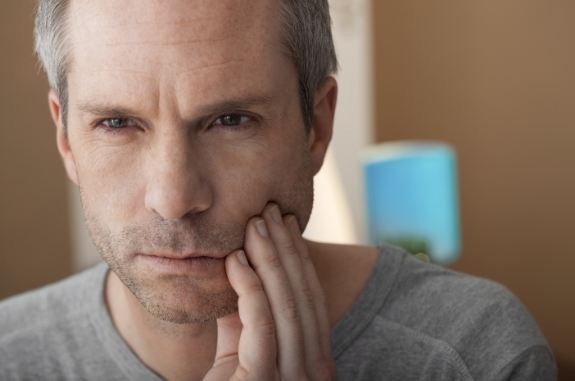
Most people don’t really seek treatment for bruxism teeth grinding because they don’t think it’s an issue or they underestimate the harm it can do. The following are some of the possible complications of bruxism:
- Temporomandibular joints (TMJs) are the points located on either side of the head, and they connect the jaws to the rest of the face. These joints facilitate all jaw-related movements. However, sustained bruxism can place great pressure on these joints, which can lead to temporomandibular joint disorder (TMD), which can result in jaw rigidity, swollen face, jaw locking, severe headaches, and other issues.
- Dental injuries and fractures that can damage your tooth’s enamel or damage your dental appliances like dental crowns, bridges, and dental implants.
- Constant teeth grinding can also lead to insomnia because you don’t get enough restful sleep.
Symptoms of Bruxism/Teeth Grinding

Are you confused about whether you’re suffering from bruxism? The following are some of the primary symptoms to look out for:
- Constant teeth clenching.
- Grinding your teeth constantly, either during the day or at night. Sleep-related bruxism may even be loud enough that others can hear it.
- Chipped or fractured teeth due to the constant teeth clenching.
- The tooth enamel can wear away, which can expose the dentin and lead to tooth sensitivity.
- TMJ bruxism, which is a condition in which your jaw muscles get damaged, and you suffer from tightened jaws.
- Soreness in your facial or jaw muscles.
- Earaches and headaches.
- Sleep-related bruxism can lead to insomnia.
What Causes Bruxism?
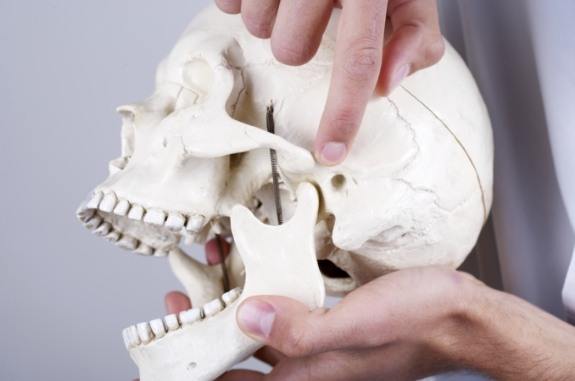
It’s hard to narrow down the exact root cause of bruxism. You may suffer from teeth grinding due to various physiological, psychological, or even genetic factors. The following are the leading risk factors for bruxism:
- Stress: Teeth grinding and bruxism are often caused by anxiety, frustration, stress, anger, and other related issues. These issues cause you to clench your teeth even when you’re not aware.
- Age: Young children often suffer from bruxism, but this may go away over time.
- Aggression: If you’re generally aggressive or highly competitive, then you’re likely to induce more stress upon yourself, which can lead to teeth grinding.
- Medications: Bruxism may be a side effect of various medications and drugs, including psychiatric medications.
- Substance Use: Over-consumption of drugs and tobacco can also lead to bruxism.
- Genes: Sleep-related bruxism often runs in the family genes.
- Underlying Conditions: In various situations, your bruxism may just be a symptom of a larger underlying disorder like epilepsy, Parkinson’s disease, sleep apnea, etc.
How Do I Stop Grinding My Teeth in My Sleep? How Do I Treat Teeth Grinding?
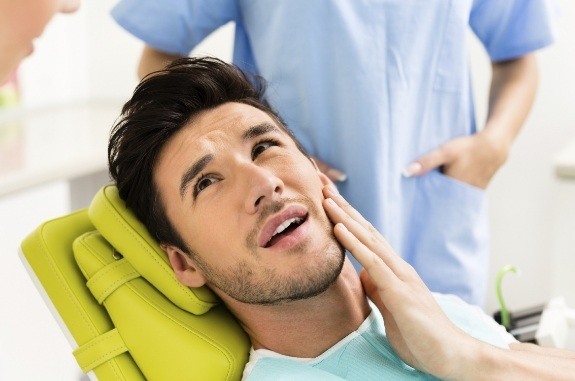
Most dentists check for signs of dental bruxism during your regular dental appointments. If you do have any symptoms of bruxism, the dentist will recommend coming for regular dental appointments so they can track the progression of those symptoms and diagnose bruxism. The dentist will then ask some basic questions regarding your sleeping habits, stress levels, and symptoms to identify the root cause of bruxism. This may require several sessions as well. The dentist will recommend the following treatments to either cure teeth grinding altogether or minimize the impact.
Mouthguard for Teeth Grinding
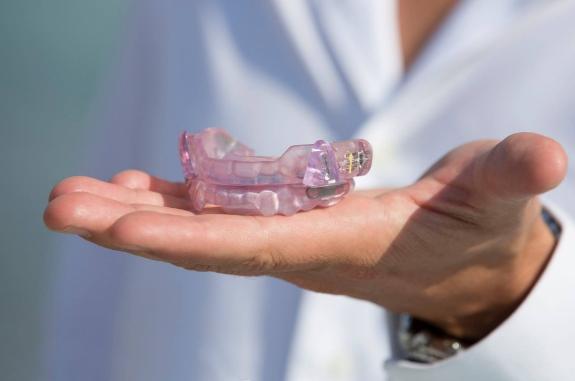
A mouthguard doesn’t treat teeth grinding, but it is the most effective means of protecting your mouth from its effects. These are soft appliances that you have to wear in your mouth. So, when you start to clench your teeth, they will remain separated and won’t gnash against each other, which will minimize the adverse effects of teeth grinding. This can also be used as a TMJ bruxism treatment.
Dental Correction
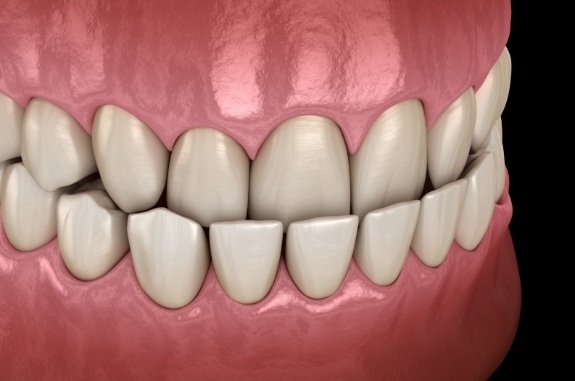
As previously mentioned, sustained bruxism can damage your teeth. It can lead to enamel wearing off, tooth chipping, fractures, and other issues. If that’s the case, the dentist will first fix the dental issues caused by bruxism and then they may surgically alter your chewing surfaces to control the damage.
Medications

Medications are largely ineffective as permanent solutions or treatments for bruxism so you shouldn’t rely on them. However, a dentist may recommend some medications to relax your muscles or relieve some of your stress, which can temporarily control your bruxism. But you should only go for this if you’re suffering from severe bruxism and you’re already seeking other treatments.
Behavioral and Psychological Changes
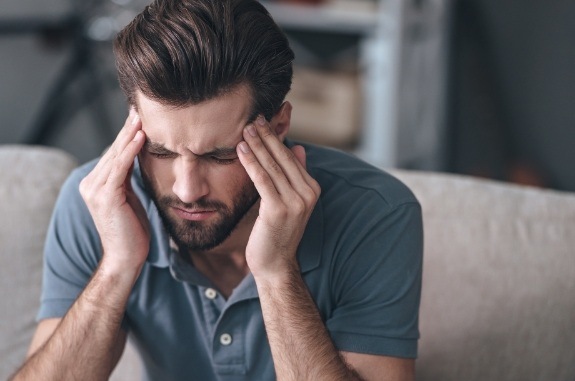
Bruxism is often caused by psychological issues like aggression, stress, anxiety, etc. In that case, the dentist may refer you to sleep specialists who can counsel you and help with behavior modification. The following are some psychological methods of treatment:
- Stress Management: Stress is often the leading cause of bruxism. This can be controlled through stress management exercises and counseling.
- Behavioral Changes: Some people suffer from bruxism because of their posture and how they position their mouth and jaws. Counselors can give you exercises for proper jaw and mouth movement that you can practice and gradually change your bruxism-causing habits.
- Biofeedback: Bruxism can also be controlled if you understand how to control your muscles using various devices.
Is There a Permanent Solution to Bruxism?

Treating bruxism is a long-term process and can’t be done quickly over a single or a few sessions. The following are some of the permanent solutions to bruxism:
- Learning exercises to better control your jaw muscles and movements.
- Undergoing therapy or counseling to deal with aggression, stress, etc.
While these treatments are underway, you can wear a mouthguard to minimize the damage caused by bruxism.
I Need a Checkup & Cleaning I Need a Dentist for My Child I am Worried About Gum Disease I Have a Cavity or Broken Tooth I am Missing One or More Teeth I Want to Enhance My Smile I Want a Straighter Smile I am Concerned About Sleep Apnea I am Scared of the Dentist I Have Pain in My Jaw I Have a Dental Emergency View Our Services


